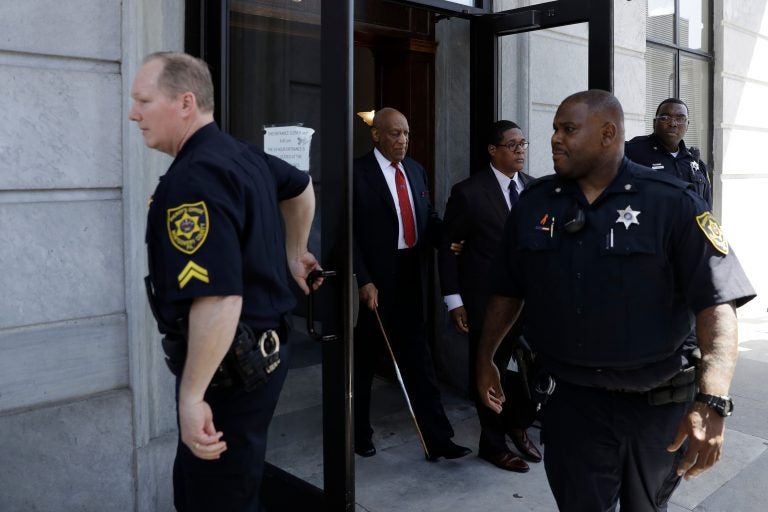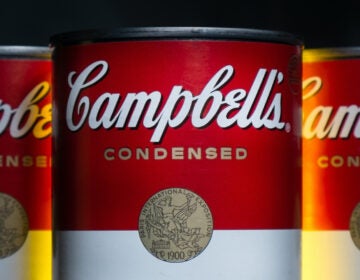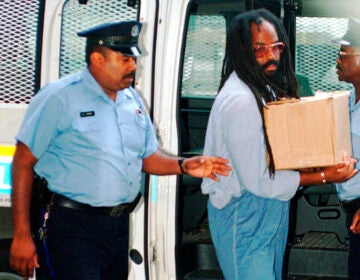Race not only factor in Cosby case, but it was factor that couldn’t be ignored

Bill Cosby departs after his sexual assault trial, Thursday, April 26, 2018, at the Montgomery County Courthouse in Norristown, Pa. Cosby was convicted Thursday of drugging and molesting a woman in the first big celebrity trial of the #MeToo era. (Matt Slocum/AP Photo)
I was walking out of my mother’s Chestnut Hill apartment when I checked my phone and read the news of Bill Cosby’s conviction on three counts of aggravated indecent assault.
“They found Bill Cosby guilty on all three counts,” I said aloud, the shock evident in my voice.
A black man walking his dog heard the news and said, “Oh no!”
My mother’s face creased in a look of sad resignation.
The three of us exchanged knowing glances as we spent a moment mourning the fate of another black man swallowed up by the system.
But the truth of Cosby’s conviction is much more complicated than the simple fact of his blackness. In a case where the political ambitions of a prosecutor met a movement seeking justice for the victims of sexual assault, race lingered firmly in the background — as did the dynamics of wealth, history, and justice.
Like everyone, I watched as dozens of mostly white women accused Bill Cosby of drugging and sexually assaulting them. But as a black man in America, I viewed their stories through a complicated prism of race and politics, gender and history. While trying to gain context, I often found myself drawn to history, because history is the one lens that does not change.
History tells me that black men who are accused of raping white women have often been lynched. History tells me that black men who face the American justice system are disproportionately incarcerated. History tells me that Cosby — a black man — had little chance of walking away from the accusations of dozens of mostly white women.
But even as I watched the drama play out to its inevitable conclusion, there was a still small voice whispering in my head. A voice that said Cosby put himself in this position. A voice that said Cosby would not have paid to settle a civil suit built on lies. A voice that said Cosby’s legion of accusers had to include women who were truthful.
That still small voice told me that race was not the only factor in Cosby’s case, but it was a factor that could not be ignored.
Montgomery County’s Kevin Steele ran for district attorney on the promise to prosecute Cosby for sexually assaulting a white woman named Andrea Constand. In a county that’s 80 percent white, and less than 10 percent black, that was a winning message, and Steele followed through on his promise.
In the run-up to his first trial, the momentum against Cosby grew. Institutions that had formerly embraced him rushed to distance themselves. Honorary degrees from multiple universities were revoked. Cosby’s multimillion-dollar donation to Spelman College was returned. Networks stopped airing his show. A mural in North Philadelphia was painted over. A portrayal of Cosby was removed from Philadelphia’s Gallery Mall.
Along the way, the courts also seemed to work to make a conviction more likely. A judge’s decision to open a sealed deposition made the case against Cosby much stronger. After Cosby’s first trial ended in a mistrial, Judge Steven O’Neill’s ruling allowing the testimony of five additional accusers in his second trial strengthened the prosecution.
But none of that means the jury was wrong in convicting Cosby. It simply means that Bill Cosby is the first wealthy and powerful man to be convicted of sexual assault in the age of #MeToo.
I wonder if there will be others, and I wonder if they will be white?
Will movie mogul Harvey Weinstein face criminal prosecution after numerous accusations of sexual assault and rape? What about former Today Show anchor Matt Lauer, who is accused of sexually assaulting at least one former co-worker, or President Donald Trump, whom multiple women have accused of sexual assault or harassment?
The outcomes for those men and countless others remain to be seen. But as the movement against sexual assault grows stronger, I hope the role of race in gaining convictions will grow weaker.
Black men like Cosby should not be the only ones going to jail.
Because as one black woman said in a social media post I won’t soon forget, “If he was white, he would be president.”
Listen to Solomon Jones on Praise 107.9 FM weekdays from 10 am to Noon
WHYY is your source for fact-based, in-depth journalism and information. As a nonprofit organization, we rely on financial support from readers like you. Please give today.





